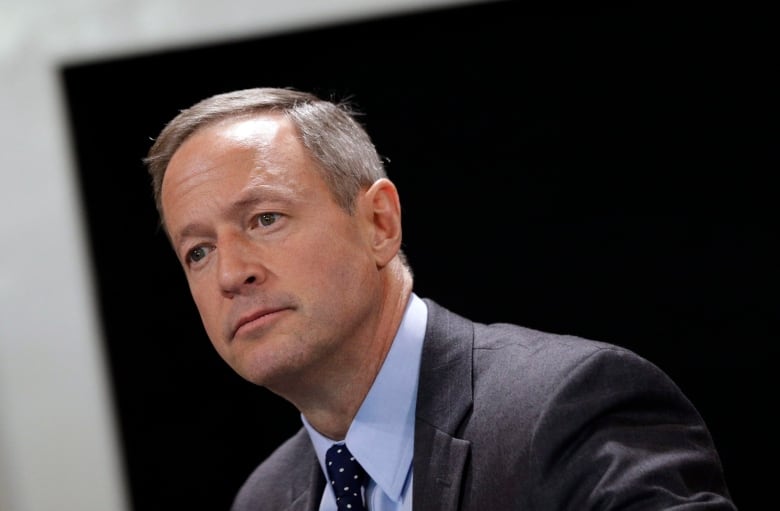Hillary Clinton: Does anyone else stand a chance as Democratic presidential nominee?
Clinton so 'overwhelmingly ahead,' political experts wonder if possible rivals should take her on

Political furor over the emails of Hillary Clinton, who's all but anointed as Democratic nominee in the U.S. presidential race — even though she hasn't thrown in her hat — may be a gift to Republicans, but may also have provided a chance for other potential challengers from her own party.
Clinton, under fire for using a personal email account to conduct government business while she was secretary of state, and for having deleted thousands of those emails, is expected to announce her candidacy this month, with some U.S. media speculating that the launch of her second bid for the top job will come as early as this weekend.
- Hillary Clinton defends using private email account
- Hillary Clinton email excuses 'laughable,' says top freedom-of-information official
- Is Hillary Clinton too old to be president?
- Analysis: Why Hillary Clinton could bury the Republican presidential field
Although some recent polls suggest the scandal may be taking a toll on her approval ratings, political experts say that unless something huge emerges from the controversy, it's doubtful it will have much influence on Clinton's chances to become the party's nominee. Still, it has provided enough fodder to prompt Democrats, political pundits and Washington journalists to begin looking at other possible contenders.
Detractors of Clinton will point to her commanding poll lead in the 2008 primaries, before a young Illinois senator came along and dashed her presidential dreams.
Crushing the field
This time around, however, Clinton is not just leading the pack of possible rivals — she's crushing it. Almost all polls have her ahead by roughly 40 points, with Vice-President Joe Biden second by a big margin.
As well, none of the possible Democratic contenders, so far, has any kind of buzz comparable to that of then candidate Barack Obama, whose keynote speech at the 2004 Democratic convention immediately generated talk of a presidential bid in the near future.
Different names have been thrown around as possible contenders — former Virginia senator Jim Webb, Independent Vermont Senator Bernie Sanders, Secretary of State John Kerry and even Al Gore, whose spokespeople quickly dismissed such notions.
But so far, the three individuals given the best chance to pose any kind of legitimate challenge to Clinton are:
Elizabeth Warren, Massachusetts senator
An outspoken critic of Wall Street and income inequality, Warren has attracted a devoted following from the Democratic Party's progressive wing, and is seen as the only candidate who could pose any kind of real challenge to Clinton.

"I'm not running and I'm not going to run," she recently told Savannah Guthrie, of NBC's Today show, who tried every which way to get a different response from the senator.
"If she were to run, she would be Hillary's greatest threat, probably because a decent number of progressive groups, more liberal organizations, are kind of on the 'draft Warren' team," said political analyst Geoffrey Skelley, associate editor at Sabato's Crystal Ball at the University of Virginia Center for Politics. "They would like to see Warren get into the race to push the issues she focuses on."
Still, Warren is no Obama, Skelley says, lacking his youth and a comparable moment where she has captured the national attention, as Obama did at the 2004 convention.
If anything, just the threat of a Warren run could push Clinton to focus on those issues, out of fear of opening up further a divide in the party between the centrists and progressives.
Clinton "really is in a position of incredible strength and she doesn't want to screw that up by irritating the left more than she already does," Skelley said.
Martin O'Malley, former Maryland governor

He has also taken a not-so-subtle shot at both Republican Jeb Bush's probable run and Clinton's, saying to ABC's This Week: "The presidency of the United States is not some crown to be passed between two families."
But O'Malley's quest to take the nomination would be an uphill battle. He has little national name recognition and certainly would struggle to amass the fundraising needed to mount a competitive campaign against Clinton.
O'Malley is also coming off a relatively recent stunning political loss — not his own, but his Democratic chosen successor to take over the governorship of his home state of Maryland. Not only was it a defeat, but a loss in an increasingly blue state, as Kelley points out, where Democrats have won a higher percentage of the vote in the last elections than they have in California.
'Unless he's utterly deluded, his plan is not to go in there and beat Hillary Clinton. It's, 'I'm going to be there in the event that something happens,'" said Tom Bevan, co-founder of the political website Real Clear Politics.

Joe Biden, U.S. vice-president
The inside scoop is that the vice-president will not launch a campaign unless Clinton bows out. Although he's well-liked and respected among many Democrats, his penchant for gaffes as well as his age (he's 72, five years older than Clinton), are factors against him.
"Biden has become in many respects a punch line, a punch line for members of his own party, a punch line certainly on the Republican side. But it's also in mainstream culture.
Added Skelley: "I think it is telling that Clinton is overwhelmingly ahead and that Biden, who is the sitting vice-president, would be so far behind and kind of almost out of sight, out of mind for Democrats looking ahead to 2016."